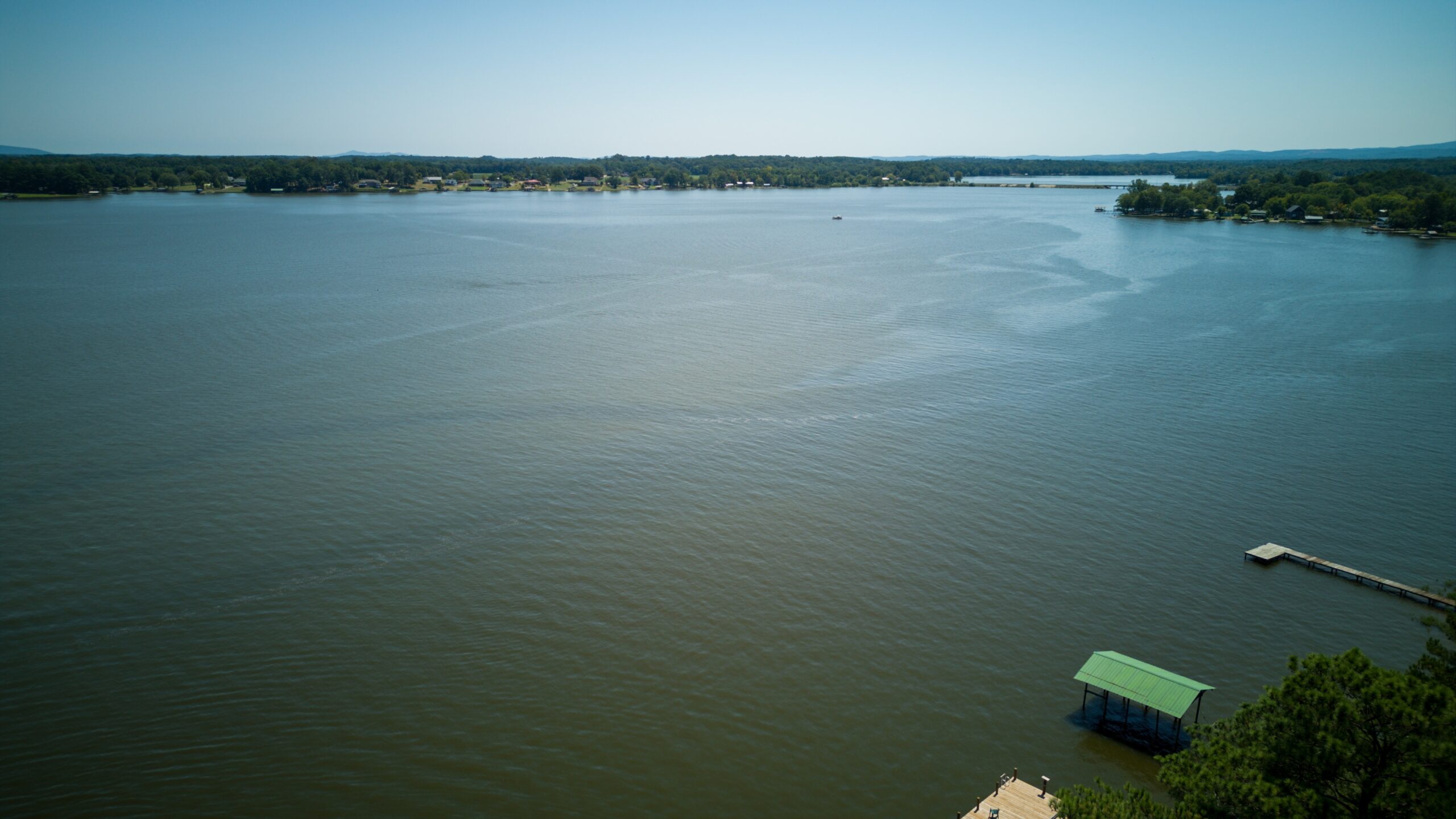Weaver Law Firm helps people in Rome when they’re injured in an accident. Rome and Floyd County are home to beautiful waterways like Lake Weiss and the Oostanaula River, which are popular for boating, fishing, and water recreation. While these places bring fun and relaxation, accidents can still happen on the water. If you’re injured in a boating accident here in Rome, our personal injury team can guide you through the next steps and help protect your rights. Set up a free consultation today.

When Should You Hire a Lawyer?
A boating accident is stressful. Not only do you have to deal with the injuries, but there’s also the worry of drowning or other serious complications. Every accident is different, and how much legal help you need depends on your situation.
If your injuries are minor, you might not need to get a lawyer. But many boating accidents cause serious injuries, and having someone on your side can make a huge difference. Here’s how we can help:
- Look into the accident and figure out what happened
- Collect important evidence and documents
- Determine who is responsible
- Evaluate your claim and what you might be able to get in financial support
- Handle insurance companies so you don’t have to
- Explain the legal process in plain, simple terms
- Make the whole process easier for you and your family
Boating accidents are tough, but you don’t have to face it alone. Having someone who understands what you’re going through—and who can guide you step by step—can take some of the weight off your shoulders so you can focus on getting better.
How Do Boating Accidents Happen in Rome?
Boating accidents can be scary and confusing, and understanding how they happen is important if you’re trying to figure out who might be responsible. Whether it’s on Lake Weiss, the Oostanaula River, or one of the smaller local waterways, most accidents fall into a few common situations:
- Collisions – Boats can run into each other or hit things like docks, rocks, or buoys. This often happens when someone isn’t paying attention, is going too fast, or misjudges how much space they have.
- Capsizing – Boats can tip over if they’re overloaded, hit a big wave, or aren’t handled carefully. When this happens, passengers can end up in the water or trapped under the boat.
- Groundings – Sometimes a boat hits the bottom of a river, lake, or shallow area. These accidents often happen when someone isn’t familiar with the water, misreads charts, or isn’t watching where they’re going.
- Flooding or sinking – Water can get into a boat because of leaks, rough conditions, or poor maintenance. In some cases, this can cause the boat to partially or fully sink.
- Falls overboard – People can fall into the water if they’re standing too close to the edge, the boat is moving too fast, or life jackets aren’t worn.
- Propeller injuries – These happen when someone is in the water near a moving propeller or when safety rules aren’t followed. These accidents can be serious and even fatal.
- Fires or explosions – Fuel leaks, electrical issues, or careless handling of flammable materials can start fires or explosions, which are extremely dangerous on the water.
Every boating accident is different, but most are linked to someone’s negligence or unsafe actions. Knowing exactly how an accident happened can make a big difference in a claim–not just for your sake, but for the sake of a potential claim and nailing down who’s responsible.
Who’s Responsible For Damages in a Boating Accident?
While a boating accident is scary, it’s ultimately like any other vehicle accident in terms of figuring out who’s responsible. It’s still going to come down to negligence, where someone didn’t take the proper care and caused the accident that left you injured. So, with a boating accident in Rome, responsibility for your damages could fall on any or multiple of the following:
- The person driving the boat
- The owner of the boat, if they weren’t driving
- A rental company that leased the boat
- The boat manufacturer or a parts manufacturer
- Another passenger on the boat
- Property owners, if the accident happened near private land
- Local or state government agencies, if it happened on public waterways
Once responsibility is figured out, you can begin the process of filing a claim for your injuries. While this sounds simple, it’s ultimately like any other accident claim where you’re going to have to prove what happened and then accurately show what you’ve lost.
What Damages Can I Get in a Boating Accident Claim?
When you think about the potential for injuries and other damage from a boating accident, it’s pretty serious. Basically, you’d be dealing with all the inherent issues of a car accident but on water. That means added risks–drowning, being thrown from the boat, or serious injuries from collisions—that often make the consequences more severe than a “normal” accident.
Even with these risks, you can file an injury claim when someone else causes the boating accident and injures you. Whether you decide to go with an insurance claim out of court or a full personal injury lawsuit, it’s about recovering your “damages” like:
- Medical bills, including hospital visits, surgeries, medications, and any equipment you need because of the accident
- Financial support for the physical and emotional pain you’ve suffered
- Lost wages if you couldn’t work, as well as future lost income
- Help with emotional challenges, such as PTSD or ongoing trauma
- Any reduction in your quality of life caused by the accident
- If someone died in the accident, costs related to funeral services, lost earnings, and other associated expenses
Every boating accident is different, and claims can become complicated when multiple people or parties are involved. Outside of these challenges, though, it’s ultimately going to come down to the evidence you can get and show.
What Evidence Should I Use in a Boating Accident Claim?
When it comes to proving a boating accident claim, the details matter. The more evidence and information you can gather, the stronger your case for damages will be. Key types of evidence include:
- Medical records and bills – Documentation of your injuries, treatments, hospital visits, medications, and any ongoing care helps show the extent of your harm and the costs associated with it.
- Pictures and videos – Visual records of the accident scene, damaged boats, property, and environmental factors like weather or water conditions provide a clear picture of what happened.
- Witness statements – Statements from anyone who saw the accident or the conditions leading up to it can help establish fault and back up your version of events.
- Accident reports – Reports from law enforcement, marine patrol, or other authorities create an official record of the incident.
- Equipment and property evidence – Keeping damaged equipment, boat logs, navigation records, or communication records can help show exactly how the accident occurred and who may be responsible.
- Insurance and legal documents – Any insurance policies, rental agreements, or ownership documents can be crucial in determining liability and making a claim.
- Personal notes – Notes about what happened, including your own recollection of the accident and its aftermath, can help piece together the story and show the impact on your life.
Collecting this evidence doesn’t just support your claim—it paints a full picture of how the accident affected you physically, financially, and emotionally. The more complete your records, the better your chances of getting the damages you’re going to need to move forward and get better.
Frequently Asked Questions
What if I don’t know who owns or manages the spot where I’m injured in the boating accident?
You don’t need to have all the answers. Our team can help investigate and identify the responsible parties so your claim can move forward.
Can I file a claim if my loved one is killed in the boating accident?
Yes. Certain family members can file a wrongful death claim to cover expenses like funeral costs, lost income, and other losses while holding the responsible party accountable. In Georgia, this is usually limited to spouses, children, or other close relatives.
What if the accident happens on the boat itself?
Liability may involve the boat operator, owner, rental company, or even the manufacturer if a defect contributed. Each case is different, but you can still take legal action with the right guidance.

Contact Weaver Law Firm After a Boating Accident in Rome
If you’ve been hurt in a boating accident in Rome or elsewhere in Floyd County, Weaver Law Firm is here to help. Our local team understands how overwhelming these situations can be and will guide you through the legal process every step of the way. While it won’t undo the accident, we can help make sure you and your family have the support you need. Reach out today to schedule a free consultation and talk about your options.